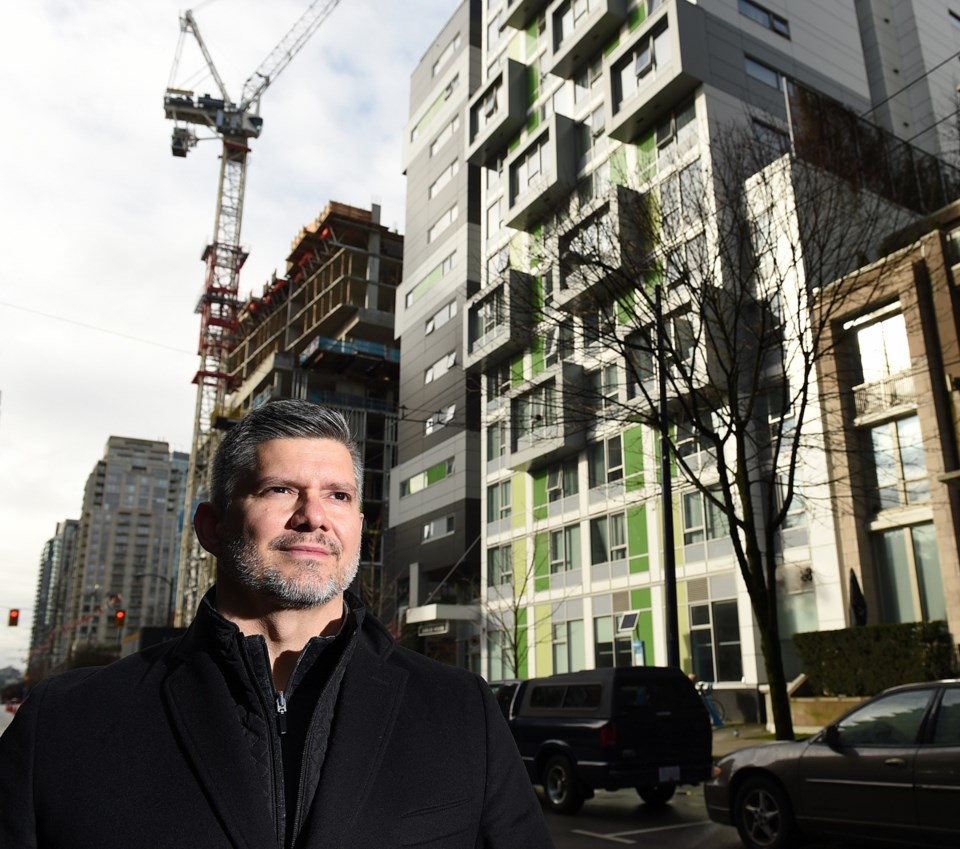Hundreds of families in Vancouver are scrambling this month, after their kindergarten-aged children didn’t get into their neighbourhood schools.
In 12 of the city’s central schools, there simply isn’t enough room, and parents have to enter a lottery for a kindergarten space.
As of Monday, there are 229 kindergarten students waiting for a space in a Vancouver school.
Brent Toderian, who worked as the chief city planner for the city of Vancouver from 2006 to 2012, didn’t win a space for his son, Alexander.
The car-free family made a conscious choice to live in a dense neighbourhood, where everything they need would be in walking distance, including the school.
“The irony of having the one thing that hasn’t worked for that is the school across the street is particularly frustrating and heartbreaking,” Toderian said.
They live near Crosstown elementary — a school that is full, despite being only three years old. Toderian was told 105 kids signed up for 60 spaces.
The full schools are mostly in the city centre — downtown or in the area surrounding Olympic Village. Many schools in less dense areas have plenty of space. As the city changes and densifies, the anomaly is intensifying. In 2014, there were six full schools, today there are 12.
Every student who lives in Vancouver will eventually be offered a space in a Vancouver school, Vancouver School Board chairperson Janet Fraser said. Siblings get first priority, and this year, all siblings got in to their catchment schools.
Toderian is a consultant to cities around the world and says Vancouver is an “international success story” at getting families to move downtown. The city has done this by requiring developers to build two and three-bedroom condos, building playgrounds and other strategies, Toderian said.
“Other cities would kill to have families downtown,” he said.
But Vancouver’s strategy may have been a tad too successful, too soon, considering the school space crunch. Although given that Elsie Roy elementary, a Yaletown school, has had a wait list for more than a decade, there really has been plenty of time to figure this out.
Many students on wait lists will eventually get a place in their neighbourhood school, because some of the students who were accepted will decide to go to French immersion or another “choice” program, or to go to school in another neighbourhood for childcare.
Meanwhile, the VSB is talking to Education Minister Rob Fleming, local members of the legislative assembly and Vancouver’s Mayor Kennedy Stewart, to explore solutions, Fraser said. They’re also looking at ways the school board could raise capital funding, which could be spent on building a new school, most notably the school board’s No. 1 priority, a school at Olympic Village, Fraser said.
“We are property rich and cash poor,” she said. “It’s very unusual for a school district to build and own its own school.”
That’s because building schools is a provincial government responsibility. But the VSB has already committed to spend its own money on a new school for Coal Harbour and a new, expanded Roberts Annex in the West End. They were only able to get the money to do so by selling the land underneath the existing Roberts Annex to B.C. Hydro for a new substation, for an undisclosed sum in 2018. At that time, the VSB was told the province didn’t anticipate funding any school spaces downtown in the next 10 years, Fraser said.
The new school at Coal Harbour will open in 2023 as part of a City of Vancouver project including housing and a daycare, Fraser said. A school for Olympic Village is likely at least five years off, even if the education ministry were to shock everyone and approve it when they approve VSB’s capital plan in March.
Toderian wonders why the school board couldn’t rent space in the Tinseltown Mall or in an office building nearby. Fraser says the money for that would have to come out of VSB’s already squeezed operating budget, which would, of course, require cuts to other areas.
The Ministry of Education says it’s VSB’s responsibility to determine how their space is used.
“In just over two years, the ministry has provided nearly $290 million to the VSB for school capital projects, with seismic safety as our top priority, spending one in six of the Ministry’s school capital dollars in Vancouver,” the ministry said in an emailed statement.
Fraser acknowledges the province has approved many seismic upgrades, but says they have not recently approved many expansions or new schools.
For Toderian, the economic benefits of having families living downtown far outweigh the costs of building new schools. The closer people live to their workplaces, the more economic benefits, like lower transportation costs and better public health, a city and province can realize, he said.
That big picture is important, and it falls on all levels of government to consider it when making fiscal decisions. Rather than spend more time talking about who should pay for it, all levels of government should collaborate to find a creative solution. Vancouver has changed — and the powers that be need to change with it.



